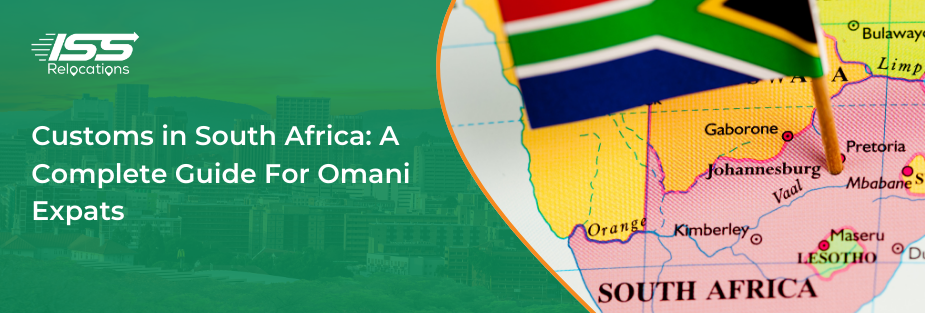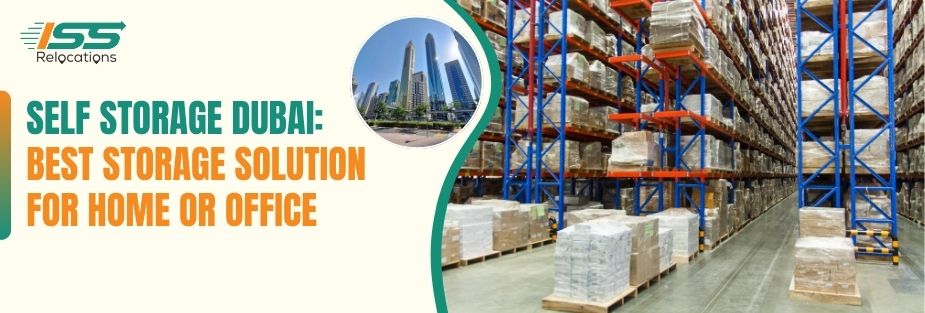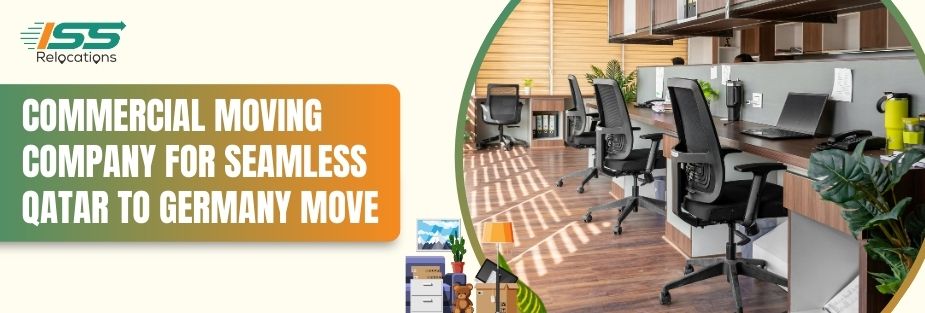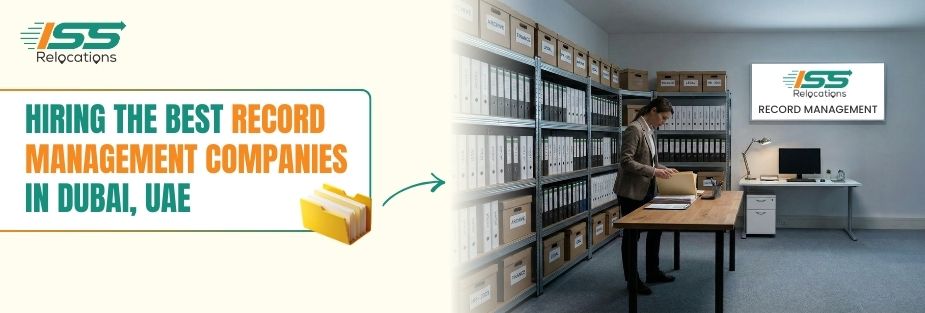
Customs in South Africa: A Complete Guide For Omani Expats
Relocating to a new country involves many challenges, and understanding customs regulations is one of the most critical aspects of a smooth transition. If you are an Omani expat planning to move, knowing the customs in South Africa is essential to avoid unexpected duties, delays, or penalties.
South Africa has strict regulations on what can be brought into the country, covering personal items, household goods, and even vehicles. The South African Revenue Service (SARS) enforces these laws, ensuring that all imports comply with national policies. Whether you are carrying goods in your luggage, shipping household items, or bringing a vehicle, it is important to understand the customs in South Africa to ensure compliance.
This guide provides an in-depth look at South African customs procedures, duty-free allowances, restricted and prohibited items, import duties, and everything Omani expats need to know before moving. Staying informed will help you avoid unnecessary costs and make the relocation process seamless.
Omani Expats Relocating?
Expert Customs Clearance And Relocation Support For Omani Expats
Understanding Customs in South Africa
The customs process in South Africa is managed by SARS, which regulates the movement of goods into the country. Compliance with these regulations is mandatory, and failure to adhere to them can result in penalties, confiscation of items, or legal consequences. Omani expats must familiarize themselves with the customs in South Africa before traveling or shipping goods to ensure a hassle-free entry.
Role of SARS in Customs Regulation
SARS is responsible for implementing customs laws and controlling imports and exports. The agency ensures that all goods entering South Africa comply with health, safety, and tax regulations. Customs in South Africa involve strict checks on goods to prevent illegal imports, protect local industries, and maintain national security.
Omani expats must declare all items at entry points, whether arriving by air, sea, or land. Depending on the nature of the goods, SARS may impose duties, taxes, or additional requirements for clearance. Understanding these regulations beforehand can help expats avoid unexpected costs.
Importance of Compliance for Omani Expats
Following customs regulations is crucial for a smooth relocation experience. South Africa has specific rules on what can be brought in duty-free and what requires declarations or permits. Non-compliance can lead to delays, fines, or confiscation of goods.
Omani expats should prepare all necessary documents in advance and ensure that any restricted items are declared upon arrival. Being aware of the rules governing customs in South Africa can prevent complications and make the transition easier.
Read Also:What to Know: Custom Clearance & Places to Visit in Paris France
Call Our Team!
What You Can and Cannot Bring into South Africa
Understanding what can and cannot be brought into the country is essential for any Omani expat Packers and movers to South Africa. SARS provides clear guidelines on duty-free allowances, restricted items, and prohibited goods.
Duty-Free Allowances
Omani expats traveling to South Africa can bring a certain amount of goods without paying customs duties. These allowances apply to personal belongings, gifts, and select consumables.
Personal Belongings and Household Goods
Travelers can bring clothing, personal accessories, and essential household items without incurring duties, provided they are for personal use and not for resale. Expats moving permanently can qualify for import duty relief on used household goods if they meet the eligibility criteria set by SARS.
Alcohol and Tobacco Limits
There are strict limits on bringing alcohol and tobacco into South Africa duty-free. Travelers can bring up to 2 liters of wine, 1 liter of spirits, 200 cigarettes, 50 cigars, and 250 grams of tobacco without paying extra duties. Any amount exceeding these limits will be subject to customs duties and taxes.
Foreign Currency Regulations
South Africa allows travelers to carry foreign currency, but any amount exceeding R25,000 or its equivalent in other currencies must be declared. Omani expats bringing large sums of money must comply with these regulations to avoid legal issues at customs checkpoints.
Restricted and Prohibited Items
Certain goods require permits for entry into South Africa, while others are completely prohibited. Omani expats should check these regulations before packing their belongings to avoid issues with customs in South Africa.
Items Requiring Special Permits
Certain items need approval from relevant South African authorities before they can be imported. These include:
- Firearms and Ammunition: Requires a permit from the South African Police Service (SAPS).
- Medicines and Pharmaceutical Products: Must be approved by the South African Health Products Regulatory Authority (SAHPRA).
- Plants and Animal Products: Require inspection and approval from the Department of Agriculture, Forestry, and Fisheries.
Completely Banned Items
Some items are strictly prohibited and cannot be brought into the country under any circumstances. These include:
- Narcotics and Illegal Drugs: Possession of banned substances is a serious offense.
- Counterfeit Goods and Pirated Media: Importing fake brands or pirated digital content is illegal.
- Explosives and Hazardous Chemicals: Require special government authorization.
Omani expats must follow these guidelines carefully to ensure compliance with customs in South Africa. Failure to declare restricted items or attempting to bring in prohibited goods can result in severe penalties, including fines and confiscation.
Import Duties and Taxes for Omani Expats
When relocating to a new country, understanding import duties and taxes is crucial to avoid unexpected costs. The customs in South Africa impose various charges on imported goods, including customs duties, value-added tax (VAT), and surcharges. Omani expats must be aware of these fees to budget their move effectively and ensure compliance with local regulations.
How Import Duties Are Calculated
Import duties in South Africa are based on the declared value of goods, their classification under the South African tariff system, and their country of origin. The customs in South Africa determine the duty percentage depending on the type of item and its economic impact on local industries.
Customs Duty Rates on Personal Goods
Personal items and household goods brought by Omani expats may be subject to duties unless they qualify for duty-free entry. The customs in South Africa impose different duty rates on various goods, typically ranging from 0% to 45%. High-value items such as electronics, luxury goods, and vehicles attract higher rates.
VAT and Additional Surcharges
All imported goods are subject to a 15% VAT, which is calculated based on the item’s customs value plus the applicable duty. In some cases, additional surcharges may be imposed on specific products, especially luxury items or commercial shipments. The customs in South Africa enforce strict tax policies to ensure compliance and revenue generation.
Special Tax Exemptions
Certain categories of goods qualify for tax exemptions under specific conditions. Omani expats must ensure they meet these requirements before assuming duty-free entry for their belongings.
Rules for Diplomats and Returning Residents
Diplomats and South African residents returning after an extended stay abroad may be eligible for tax exemptions on personal effects and household goods. However, they must provide the necessary supporting documents to the customs in South Africa to claim these exemptions.
Import Duty Relief for Household Goods
Omani expats moving permanently to South Africa can apply for import duty relief on used household goods. To qualify, items must be owned and used for at least six months before importation. This exemption does not apply to new goods, commercial imports, or items intended for resale.
Understanding these duties and exemptions helps Omani expats avoid unnecessary costs and ensures compliance with the customs in South Africa when relocating.
Customs Procedures at South African Airports and Borders
Navigating customs procedures is an essential step when arriving in South Africa. The customs in South Africa enforce strict entry processes to regulate goods and ensure compliance with import regulations. Omani expats should be well-prepared for inspections, declarations, and clearance procedures.
Green and Red Channels Explained
South African airports and border posts use a two-channel system for customs clearance. The customs in South Africa require all travelers to choose the appropriate channel based on the items they are carrying.
Who Should Use the Green Channel?
Omani expats who are not carrying any dutiable or restricted goods can proceed through the green channel. This option is available for travelers bringing only personal effects that fall within the duty-free allowances set by the customs in South Africa.
When to Declare Items in the Red Channel?
Travelers carrying items that exceed duty-free limits, restricted goods, or large amounts of foreign currency must use the red channel. The customs in South Africa require all such goods to be declared upon arrival. Failure to declare can result in fines, confiscation, or legal action.
Declarations and Inspections
Declaring goods correctly ensures a smooth customs clearance process. Omani expats must be prepared for inspections and provide all necessary documents to the customs in South Africa.
Documents Required for a Smooth Customs Process
To clear customs efficiently, travelers must provide identification, travel documents, invoices for high-value items, and permits for restricted goods. The customs in South Africa may request additional documentation depending on the nature of the items being imported.
What to Expect During a Customs Inspection?
Random inspections are conducted to verify declarations and ensure compliance. If discrepancies are found, the customs in South Africa may impose penalties or seize goods. Omani expats should always be truthful in their declarations to avoid complications.
By understanding customs procedures and preparing the necessary documentation, Omani expats can ensure a seamless entry into South Africa without delays or penalties.
Shipping Personal Belongings to South Africa
For Omani expats relocating with large amounts of personal belongings, shipping is the most practical option. The customs in South Africa have strict guidelines for clearing shipped goods, and failure to comply can result in delays or additional charges. Proper preparation and knowledge of shipping regulations help avoid complications.
Required Documentation for Shipping
International shipping involves extensive paperwork. The customs in South Africa require specific documents to process and clear imported goods efficiently.
Bill of Lading and Packing List
A bill of lading serves as the official shipping document, detailing the goods being transported. The packing list provides a breakdown of all items included in the shipment. The customs in South Africa use these documents to assess duties and ensure compliance.
Import Permits for Specific Goods
Certain items require import permits, including vehicles, medical equipment, and agricultural products. Omani expats must obtain these permits before shipping their belongings to avoid clearance delays. The customs in South Africa enforce strict import controls to prevent illegal or harmful goods from entering the country.
Customs Clearance for Shipped Goods
Clearing goods through customs requires following specific procedures. The customs in South Africa inspect, assess, and levy duties on all shipments before they are released to the consignee.
Steps for Clearing Household Items and Vehicles
Upon arrival, shipments are processed through the designated customs office. Omani expats must submit all necessary documentation, pay any applicable duties, and undergo inspections if required. The customs in South Africa may hold shipments for further verification in case of discrepancies.
Possible Delays and How to Avoid Them
Customs clearance delays can occur due to incomplete documentation, unpaid duties, or restricted items. Omani expats can expedite the process by ensuring all paperwork is in order and consulting a relocation expert. The customs in South Africa prioritize well-documented shipments, reducing the risk of unnecessary delays.
Read Also: The Role of Customs Brokers in Freight Forwarding: Comprehensive Guide
Key Considerations for Omani Expats Bringing Vehicles
Bringing a personal vehicle into a new country involves strict regulations, and Omani expats planning to import a car must follow the customs in South Africa carefully. Whether the vehicle is for temporary or permanent use, understanding the import duties, registration process, and compliance requirements is essential. Failing to adhere to these regulations can lead to heavy penalties, confiscation, or delays in clearance.
Rules for Importing a Car into South Africa
The customs in South Africa have specific rules regarding vehicle importation, including restrictions on the age, condition, and purpose of imported cars. Omani expats must check these requirements before shipping a vehicle to avoid unnecessary costs and complications.
Vehicle Eligibility and Age Restrictions
South Africa has stringent laws regarding vehicle imports. Generally, used cars are not permitted for importation unless they meet specific exemptions. Omani expats relocating permanently or importing classic cars may qualify for exemptions, but they must obtain prior approval. The customs in South Africa enforce these regulations to protect the local automotive industry and control environmental impact.
Import Duties and Registration Process
The cost of importing a car depends on customs duties, VAT, and other applicable taxes. Import duty on vehicles can range from 25% to 40%, with VAT applied at 15%. Additionally, Omani expats must complete the vehicle registration process with the South African authorities. The customs in South Africa require a roadworthiness certificate, proof of residence, and payment of all necessary fees before the car can be legally driven.
Temporary vs. Permanent Vehicle Importation
The customs in South Africa differentiate between temporary and permanent vehicle imports. Omani expats must choose the right option based on their length of stay and intended vehicle use.
Differences Between Tourist Permits and Permanent Relocation
Omani travelers visiting South Africa for a short period can temporarily import their vehicle using a Carnet de Passages en Douane (CPD) permit. This allows tax-free entry for a specified duration, provided the car is re-exported before the permit expires. However, those relocating permanently must comply with full customs clearance procedures. The customs in South Africa strictly regulate the transition from temporary to permanent import status.
Cost Implications and Compliance Requirements
Temporary imports do not incur full duties but require a refundable security deposit. Permanent imports, however, attract significant costs, including duties, VAT, and environmental taxes. Omani expats must factor these costs into their relocation plans and ensure all paperwork is submitted correctly. The customs in South Africa require detailed vehicle inspection reports to ensure compliance with road safety and emission standards.
By understanding the rules for vehicle importation, Omani expats can make informed decisions and avoid unnecessary expenses or delays. The customs in South Africa impose strict regulations, but proper planning and adherence to procedures can make the process smooth.
Tips for a Hassle-Free Customs Experience
Navigating customs procedures can be complex, especially when moving internationally. Omani expats must follow the customs in South Africa diligently to avoid unnecessary stress and ensure a smooth transition. Proper planning, accurate documentation, and knowledge of customs policies can significantly reduce delays and unexpected costs.
How to Prepare for a Smooth Customs Clearance
Proper preparation is key to avoiding common issues with customs clearance. Understanding documentation requirements, duty-free allowances, and restrictions will help Omani expats move efficiently through the customs in South Africa.
Gathering Necessary Documents in Advance
Having all required documents ready before traveling or shipping goods ensures a hassle-free process. Passports, visas, detailed packing lists, invoices, and permits must be prepared beforehand. The customs in South Africa may require additional paperwork for certain items, so checking regulations well in advance is advisable.
Understanding Duty-Free Allowances and Import Limits
Duty-free limits vary based on item type, and exceeding these limits can lead to extra costs. Omani expats must be mindful of customs policies regarding alcohol, tobacco, foreign currency, and high-value goods. The customs in South Africa impose strict monitoring on travelers carrying items beyond permissible limits, which may lead to extra duties or confiscation.
Common Mistakes to Avoid When Moving Goods
Mistakes during customs clearance can lead to costly delays. Being aware of common pitfalls helps Omani expats comply with the customs in South Africa and avoid unnecessary fines or legal issues.
Failing to Declare Restricted Items
Some goods require special permits, and failing to declare them can result in penalties. Firearms, medicines, plant products, and certain electronics fall under restricted categories. The customs in South Africa conduct thorough inspections, and any undeclared restricted items may be seized.
Inaccurate or Incomplete Documentation
Missing or incorrect paperwork is one of the most common causes of customs delays. Omani expats must ensure that all shipping documents, permits, and declarations are accurate. The customs in South Africa require precise documentation to verify the value and classification of imported goods.
Seeking Professional Customs Assistance
For a hassle-free experience, many Omani expats rely on professional customs brokers or international moving services. These experts understand the customs in South Africa and can assist with document preparation, duty calculations, and customs clearance procedures.
Benefits of Hiring a Customs Broker
Customs brokers have in-depth knowledge of regulations and can streamline the clearance process. They assist in classifying goods, calculating duties, and ensuring compliance. The customs in South Africa frequently update their regulations, and professionals can help expats stay informed of any changes.
How ISS Relocations Can Help Omani Expats
Navigating customs procedures can be overwhelming, especially for first-time movers. ISS Relocations provides expert assistance for Omani expats, ensuring that all documentation is in order, duties are accurately calculated, and shipments clear customs efficiently. With extensive experience handling international relocations, ISS Relocations simplifies the process and ensures full compliance with the customs in South Africa.
Wrapping Up
Understanding the customs in South Africa is essential for Omani expats moving to the country. From duty-free allowances and import duties to vehicle shipping regulations and customs clearance procedures, every step requires careful planning and compliance with SARS regulations.
Failing to declare restricted goods, not preparing the right documentation, or misunderstanding import duties can lead to delays, penalties, or even confiscation of items. Whether bringing personal belongings, shipping a vehicle, or carrying large sums of currency, Omani expats must familiarize themselves with the customs in South Africa to ensure a smooth transition.
Shipping household goods or personal effects requires specific documentation, including a bill of lading, import permits, and itemized lists. Similarly, importing a vehicle involves customs duties, roadworthiness certification, and compliance with registration procedures. The customs in South Africa enforce strict rules, but with the right preparation, Omani expats can avoid unnecessary challenges and complete their move without issues.
Professional assistance can make the customs clearance process much easier. ISS Relocations specializes in international moving services and helps Omani expats navigate the complexities of customs in South Africa. From documentation support to customs brokerage, ISS ensures that all aspects of the moving process are handled efficiently, allowing expats to focus on settling into their new home.
By following regulations, preparing the right paperwork, and seeking expert guidance when needed, Omani expats can experience a stress-free relocation. The customs in South Africa may seem complex, but with proper knowledge and planning, relocating to South Africa can be an exciting and seamless journey.
Plan Stress-free Move with Top Moving Company in UAE - ISS Relocations

Frequently Asked Questions
What items are duty-free when entering South Africa?
The customs in South Africa allow travelers to bring personal effects, clothing, and essential household goods duty-free, provided they are for personal use and not for resale. Alcohol, tobacco, and luxury goods have specific duty-free limits, beyond which duties and VAT apply.
How much cash can I carry when traveling to South Africa?
Omani expats can carry up to R25,000 in South African currency or an equivalent amount in foreign currency. The customs in South Africa require all amounts exceeding this limit to be declared upon arrival. Failure to declare large sums of money can result in fines or confiscation.
What happens if I don’t declare restricted items at customs?
Failing to declare restricted items can lead to penalties, confiscation, or even legal consequences. The customs in South Africa enforce strict inspections, and any undeclared restricted goods—such as firearms, pharmaceuticals, or high-value electronics—can be seized.
Can I bring my pet when relocating to South Africa?
Yes, but pet importation is subject to strict regulations. The customs in South Africa require import permits, veterinary health certificates, and proof of vaccinations. Some pets may also require quarantine upon arrival, depending on their country of origin.
Do I need a permit to import a car into South Africa?
Yes, Omani expats must obtain an import permit before shipping a vehicle. The customs in South Africa regulate vehicle imports to protect the local auto industry. Used cars are generally not allowed unless they meet specific exemptions, such as relocation purposes or classic car classification.
What are the penalties for bringing prohibited items into South Africa?
Attempting to bring prohibited goods—such as narcotics, counterfeit goods, or hazardous materials—can lead to severe consequences. The customs in South Africa impose heavy fines, confiscation, and potential criminal charges for violations of customs laws.
Moving Company - Recent Blog
Stay informed and prepared for your next move with our latest blogs on moving services in the UAE. From expert packing tips to international relocation guides, ISS Relocations brings you up-to-date insights to make your moving experience smoother, safer, and stress-free.










